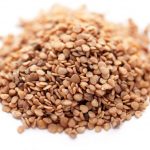
Sage – sources, health benefits, nutrients, uses and constituents at NaturalPedia.com
Saturday, July 08, 2017 by Earl Garcia
http://www.naturalnewsherbs.com/2017-07-08-sage-sources-health-benefits-nutrients-uses-and-constituents-at-naturalpedia-com.html

Sage is a traditional herb that has been cultivated since ancient Roman times. The herb is characterized by its soft, yet sweet savory flavor. The aromatic plant has earned the moniker “the guardian of herbs” for its culinary use. Aside from being a kitchen favorite, sage is valued for its healing properties. In fact, the herb has long been used in various traditional European and Chinese medicines. Due to its health-promoting effects, the International Herb Association awarded sage the title of “Herb of the Year” in 2001.
List of known nutrients
Sage is greatly valued for its high nutritional content and medicinal properties. The flavorful herb boasts with essential vitamins and minerals that help promote the body’s overall health and function.
- Beta-Carotene
- Calcium
- Choline
- Copper
- Flavonoids
- Folates
- Glycosides
- Iron
- Isoflavonoids
- Limonene
- Lutein
- Magnesium
- Manganese
- Niacin
- Phytoestrogens
- Phytosterols
- Polyphenols
- Potassium
- Pyridoxine
- Quercetin
- Riboflavin
- Saponins
- Sodium
- Tannins
- Terpene
- Thiamin
- Vitamin A
- Vitamin C
- Vitamin E
- Vitamin K
- Zeaxanthin
- Zinc
Medicinal uses for sage
As with other herbs, sage boasts of high antioxidant levels that help counter the harmful effects of free radicals and stave off oxidative stress. Likewise, the flavorful herb is highly regarded for its anti-inflammatory effects. The flavonoids and phenolic compounds found in sage effectively ease inflammation, particularly in the respiratory or gastrointestinal tracts. Sage is also touted to ease inflammation stemming from arthritis and gout. Additionally, sage is a potent superfood against general inflammation of the cardiovascular system. This lowers the odds of developing high blood pressure and heart disease.
The aromatic herb is known for its digestive benefits too. Sage contains rosmarinic acid, an anti-inflammatory compound that fends off gastric spasms, diarrhea and gastritis. Aside from this, the popular herb is found to contain certain chemicals and compounds that mimic the effects of anti-diabetes drugs. Sage is found to regulate and inhibit the release of stored glucose in the liver. This in turn prevents unwanted fluctuations in blood sugar and reduces the odds of type-2 diabetes onset. Likewise, sage may bolster diabetes management in patients who already have the disease.
In addition, previous studies have shown that consuming sage improves recall ability, memory retention and focus. The superfood is also known to stimulate neural pathways and promote brain function. This makes sage an ideal food fare in preventing the onset of cognitive conditions such as Alzheimer’s disease and dementia. On the other hand, the flavorful herb is touted for its antimicrobial properties that fend off bacterial and viral infections that affect the skin. A topical salve made from sage is an effective remedy to eczema, psoriasis, and acne.
Moreover, sage is an excellent source of vitamin K, an essential nutrient that bolsters bone density and fortifies bone integrity during aging. In fact, a single serving of sage contains up to 27 percent of the recommended daily intake for vitamin K. This reduces the risk of bone-related conditions such as osteoporosis.
Body systems supported by sage
Sage is particularly beneficial to the immune and nervous systems. Likewise, the flavorful herb promotes healthy digestive and respiratory systems. The herb also supports the heart, the skin and the bones and joints.
Ways to use sage
Sage is a widely popular herb in meat dishes. It is also a staple in Thanksgiving stuffing. Likewise, the fragrant herb is an excellent flavoring to various pasta, salad and soup recipes. AllRecipes.com has listed some of the most interesting dishes that use sage.
Where to learn more
- Medicinal properties of sage revealed
- Use sage for everyday brain health
- How Sage overcomes various conditions?
- Use sage to improve oral and mental health
- Research shows that sage can help preserve or enhance memory and brain functions
Summary
Sage prevents inflammation-related conditions, cardiovascular diseases and type-2 diabetes.
Sage staves off various skin diseases, digestive issues and Alzheimer’s disease and dementia.
Sage benefits the immune, nervous, digestive, and respiratory systems.
Sage also supports the heart, the skin, and the bones and joints.
Sources include:
Tagged Under: Tags: sage






